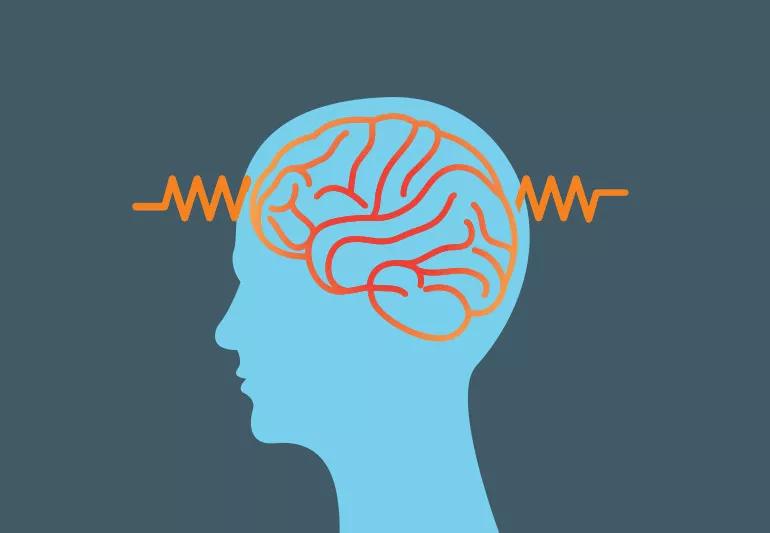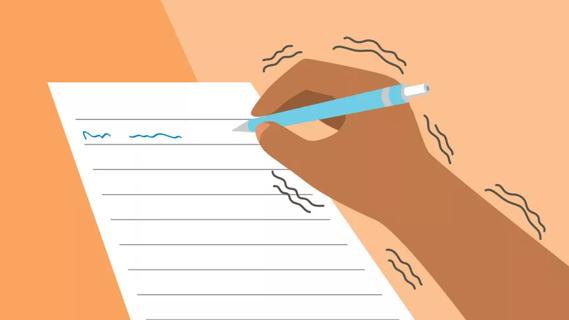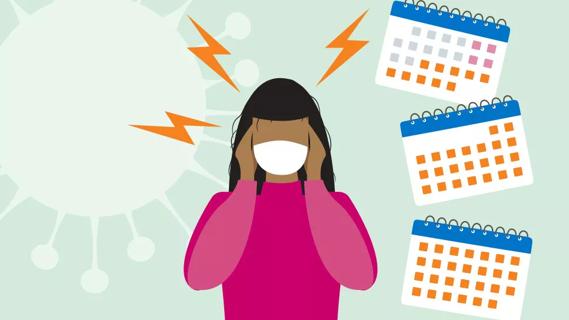The truth about an often misunderstood condition

Some myths about epilepsy are centuries old, but they still persist. Epilepsy Center Director Imad Najm, MD, dispels 13 of the most common myths about epilepsy:
Cleveland Clinic is a non-profit academic medical center. Advertising on our site helps support our mission. We do not endorse non-Cleveland Clinic products or services. Policy
Fact: A person is diagnosed with epilepsy when they has two or more unprovoked (“out of the blue”) seizures that occur more than 24 hours apart. But when something provokes a seizure, such as binge drinking, sleep deprivation or a new medication, these are not related to epilepsy.
Fact: Epilepsy is an umbrella term covering many types of seizure and epileptic disorders. It is a functional, physical problem, not a mental one, and it has many unidentifiable causes.
Fact: Epilepsy has little to no effect on a person’s ability to think, except during some seizures, during a short period following some seizures and sometimes as a side effect of certain anti-epileptic medications.
Fact: They often can, and they do. Most professions — including those in the highest tiers of business, government, justice system, sports and medicine — can accommodate a person with epilepsy.
Fact: We can’t yet predict when seizures are beginning, although some patients say they can feel a brief sensation within seconds of a seizure — which we call an “aura.” Research is ongoing and include training dogs to detect the onset of seizures.
Fact: A person is unconscious and not in any pain during most seizures. Afterward, the patient could feel discomfort if they fall down, have muscle aches or if they bite their tongue (during a grand mal seizure).
Fact: Epilepsy is most common in both the very young and the elderly. However, it can develop at any age.
Fact: Impossible. The worst thing that can happen during a seizure is that a person could bite his or her tongue.
Fact: Never put anything into a person’s mouth if they are having a seizure. This could actually injure them. Roll the person on one side, keep him or her a safe distance from any nearby objects, and let the seizure run its course. If you see any signs of distress or if the seizure persists for more than a couple of minutes, call 9-1-1.
Fact: There are many ways to treat, minimize, control and even — under the right conditions — eliminate epilepsy. With anti-epileptic medications, it’s possible to control epileptic seizures adequately in almost 70% of patients. The remaining 30% are possible candidates for surgery, but it depends on where the epilepsy originates in the brain.
Fact: Epilepsy does not generally affect a woman’s ability to conceive and has a minimal effect on a child’s development. However, if women are taking anti-epileptic drugs, the risk of birth defects ranges from 2% to 10%. “This is a bigger concern,” Dr. Najm says. People can minimize the risk by working closely with a neurologist and Ob/Gyn.
Fact: “Kids of parents with some forms of epilepsy are at higher risk of developing it, but the risk is very low,” Dr. Najm says. This is because a single gene problem rarely causes epilepsy; it usually involves a combination of multiple gene defects.
Fact: Epilepsy can affect a person’s lifestyle, but you can live a full life, Dr. Najm says. “Live your life, but live with moderation. Avoid extremes in lifestyle.” Before you start doing something new, Dr. Najm advises: “Ask yourself: ‘Could I hurt myself or someone else if I had a seizure?’ If the answer is ‘yes,’ and seizures are not well-controlled, people should avoid the activity or be very cautious.”
Learn more about our editorial process.

Déjà vu makes you feel like you’ve lived this moment before, even though that’s impossible — and it may have a neurological cause

‘Ictal pouting’ is subtle sign of frontal lobe seizures

Epilepsy expert discusses latest research, side effects and FDA guidance for use

Older adults are fastest-growing epilepsy population

Eating mindfully, sipping water and chewing slowly can help your brain catch up with your stomach

Seizure symptoms can go far beyond convulsions and may include feelings of déjà vu, temporary confusion and unusual movements

They can feel like a typical headache or a migraine headache, but the pain can last for weeks to months

It’s always a good idea to let a healthcare provider know about any back pain you’re experiencing, especially if it results from trauma or persists longer than three months

Your metabolism may torch 1,300 to 2,000 calories daily with no activity

A gentle touch in all the right places may help drain your sinuses